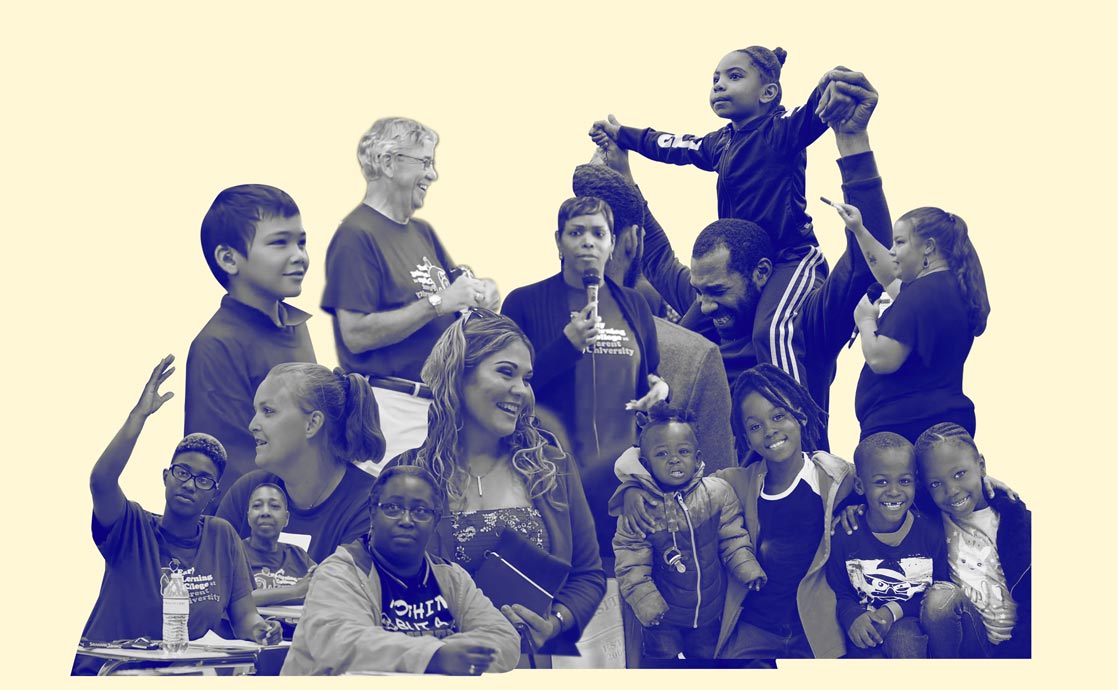In a rapidly evolving society, the pursuit of racial equality remains a pressing concern. Racial disparities, inherent biases, and systemic inequities continue to pervade various aspects of life in the United States. The Bahá’í teachings illuminate a holistic framework aimed at fostering unity and promoting the principles of justice, equality, and love among all people, irrespective of their racial or ethnic backgrounds. The initiative known as “Building Bridges: Parent University on Racial Equality in the US” serves as a focal point for enhancing understanding and advocacy within communities, particularly among parents seeking to navigate the complexities of racial dynamics in today’s world.
The essence of the Bahá’í Faith rests on the understanding that humanity constitutes a single race, with each individual endowed with the innate potential for nobility and virtue. This fundamental tenet underscores the belief in the capacity for transformation, not only on a personal level but also within the broader societal context. The “Building Bridges” program is predicated on this very ethos, as it seeks to dispel the pernicious myths that underpin racial discrimination and cultivate an environment conducive to dialogue and mutual respect.
To comprehend the significance of the “Building Bridges” initiative, one must first appreciate the transformative power of education in addressing social injustices. The notion that knowledge can lead to enlightenment is deeply rooted in Bahá’í teachings. As the renowned Bahá’í philosopher Shoghi Effendi articulated, “The only hope for the world is in the principle of the oneness of humanity.” This principle not only provides a theoretical foundation for the pursuit of racial equality but also advocates for proactive measures to instill this understanding in future generations.
The curriculum of Parent University encompasses various dimensions: it addresses historical contexts, examines the psychological ramifications of racism, and provides practical tools for parents to engage their children in conversations about race. By fostering an awareness of historical injustices, participants come to recognize the lingering effects that systemic racism has on contemporary society. The program encourages reflection and critical analysis, empowering parents to share their newfound insights with their children.
Moreover, one of the tenets of Bahá’í teachings is the imperative of action rooted in knowledge. For participants of the “Building Bridges” initiative, this translates to a commitment to translate understanding into practice. The program emphasizes active engagement with community resources, advocating for equitable policies and practices within educational systems, and fostering alliances among diverse groups. The engagement of parents is particularly pivotal; as primary caregivers, their role in shaping children’s worldviews cannot be overstated.
Additionally, the concept of ‘consultation’, a Bahá’í principle, plays an integral role in the curriculum’s framework. This practice promotes open, respectful dialogue that values all perspectives and seeks collective resolution. By employing consultation as a tool within the context of racial equality, participants learn how to engage in constructive conversations that can bridge divides and cultivate an atmosphere of understanding.
The variation in perspectives encompassed within the program reflects the diversity of the communities it aims to serve. By involving parents from differing racial and ethnic backgrounds, “Building Bridges” not only recognizes the multifaceted nature of racial dynamics but actively engages participants in collaborative learning. This approach piques curiosity, as individuals are encouraged to share their unique experiences and insights. Such dialogues foster a richer understanding of cultural nuances and systemic challenges, allowing for the emergence of empathy and solidarity.
Furthermore, one cannot overlook the role of spiritual development in the quest for racial equality. The Bahá’í Faith posits that the advancement of civilization is contingent upon the moral and spiritual elevation of individuals. Participants in “Building Bridges” are encouraged to reflect upon their personal values and beliefs, fostering a sense of responsibility towards dismantling prejudiced attitudes within themselves and the communities they inhabit. This introspective journey not only catalyzes personal growth but fosters a cumulative effect that ripples through familial and societal structures.
The ultimate objective of the “Building Bridges” initiative is to cultivate a new paradigm of understanding and respect that transcends entrenched biases. As participants grapple with complex issues surrounding race, they emerge equipped with the tools to foster intercommunal harmony. The program engenders hope—a belief that transformation is indeed achievable. When individuals approach discussions on race with openness and a commitment to learning, they pave the way for collaborative solutions that honor the dignity of every person.
In conclusion, the “Building Bridges: Parent University on Racial Equality in the US” exemplifies the transformative potential inherent within the Bahá’í teachings. By focusing on the principles of education, consultation, and spiritual development, this initiative illuminates a path towards racial harmony. It serves not only as a resource for parents but as a beacon of hope for communities striving for a future marked by equality and unity. In an age where divisiveness threatens the fabric of society, such programs echo a profound call to action—an invitation to transcend boundaries and build bridges that reflect our shared humanity.
